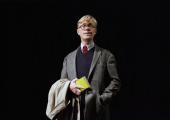Maurice Hatton’s 1978 Long Shot comes with the subtitle “A film about filmmaking”, a nod at what has practically become a cinematic sub-category in itself. But while other directors have used the genre for philosophical or aesthetic rumination, Hatton’s subject is far more immediate and down-to-earth – the perilous business of just trying to get a movie made.
Specifically, an independent movie: Long Shot is a glorious satire on the sheer rigmarole of attempting to stitch a deal together. It’s set against the backdrop of the 1977 Edinburgh Film Festival, which gives rich extra atmosphere, and has a range of cameos from various figures in the film world who were clearly in on the joke, happily sending themselves up in sympathy with the tribulations of would-be producer Charlie and his scriptwriter Neville as they try to get their Aberdeen oil adventure drama Gulf and Western off the ground.
Alan Bennett cameos as a hilariously diffident doctor
The two are played by Charles Gormley, the Glasgow director who moved from early documentary work – he had a production company, Tree Films (“Branches Everywhere”), with Bill Forsyth in the 1970s – to make features like 1986’s Heavenly Pursuits, and actor and television writer Neville Smith. Hatton gives it all a nicely sardonic verité touch, complete with elements of voice-over narration and Shandy-esque intertitles, along the lines of “On the dangers of not looking before you leap” or “Wherein ways are explored to keep the wolf from the door”. One simply announces, “Scene missing”. By definition a micro-budget project, it was shot in grainy black and white on a combination of short ends and some East German ORWO stock that was pushing its expiry date.
Charlie has a script – though the pains of rewriting are central to the film – and some funding promised, if he can get a name director on board. So it’s off to Edinburgh, in search of Sam Fuller (the director had a long association with the Film Festival there), but Fuller is nowhere to be found. “Is he press?” one assistant in the festival offices queries. Charlie tries to interest Wim Wenders, too, who's there to present his The American Friend (Wenders is credited as “Another Director”). John Boorman becomes another later candidate.
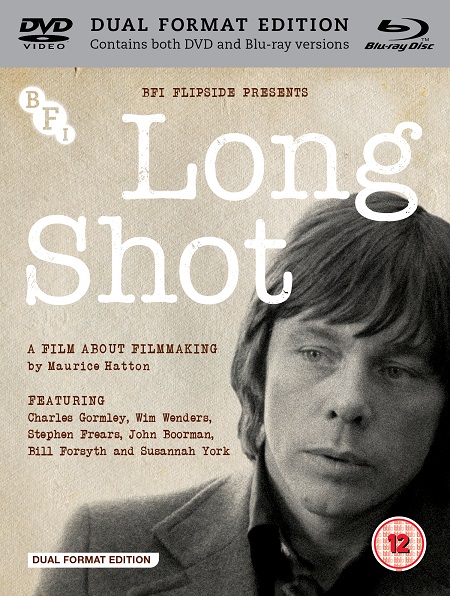 The duo becomes an unlikely trio with the appearance, for no particular good reason but very charmingly, of actress Annie (Anne Zelda). Various picaresque dashes around the Edinburgh streets follow, one in a car commandeered from Stephen Frears (credited as “Biscuit Man"). Gallerist Richard Demarco appears somewhat grouchily as himself, Alan Bennett turns in a brilliant cameo as a hilariously diffident doctor who, on being told that writing is a lonely profession, suggests meals on wheels. Susannah York gamely plays along: hearing that the female role is underdeveloped, she coolly replies, “So you came to me?”
The duo becomes an unlikely trio with the appearance, for no particular good reason but very charmingly, of actress Annie (Anne Zelda). Various picaresque dashes around the Edinburgh streets follow, one in a car commandeered from Stephen Frears (credited as “Biscuit Man"). Gallerist Richard Demarco appears somewhat grouchily as himself, Alan Bennett turns in a brilliant cameo as a hilariously diffident doctor who, on being told that writing is a lonely profession, suggests meals on wheels. Susannah York gamely plays along: hearing that the female role is underdeveloped, she coolly replies, “So you came to me?”
Long Shot is a perfect fit for the BFI’s Flipside strand, a rediscovery that is absolutely worth making – as well as a snapshot of the times, it’s also a true reflection of the enormous struggles, not to mention ingenuity, that go into getting a film idea anywhere near the screen. Gormley simply had cinema in his blood – Glasgow surely deserves a memorial to the director – and the film's final scene transports him in glorious technicolour to Hollywood, cruising the boulevards in a stretch convertible. It's a lovely ending, the stuff that dreams are made on.
This release's three extras are right on topic, too. Ross Wilson’s 1986 Hooray for Holyrood celebrates the 40th anniversary of the Edinburgh Film Festival: it’s presented by Robbie Coltrane, who doubled as a driver for the event in his stylish vintage auto (Sam Fuller did turn up, and was among his passengers). Sean Connery's Edinburgh, from 1982, is exactly what it says on the tin, lavish in its production values. Maurice Hatton’s earlier Scene Nun, Take One, a 1964 26-minuter, is a London street comedy starring Susannah York and the adventures that follow when she dresses up as a nun. There's an affectionate booklet tribute to Gormley, "Long Shot to Hollywood", by Bill Forsyth. An enchantingly off-beat package.
Overleaf: watch the new trailer for Long Shot
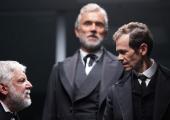

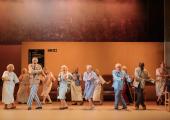
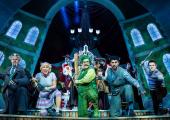
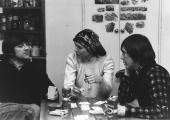
 The duo becomes an unlikely trio with the appearance, for no particular good reason but very charmingly, of actress Annie (Anne Zelda). Various picaresque dashes around the Edinburgh streets follow, one in a car commandeered from Stephen Frears (credited as “Biscuit Man"). Gallerist Richard Demarco appears somewhat grouchily as himself, Alan Bennett turns in a brilliant cameo as a hilariously diffident doctor who, on being told that writing is a lonely profession, suggests meals on wheels. Susannah York gamely plays along: hearing that the female role is underdeveloped, she coolly replies, “So you came to me?”
The duo becomes an unlikely trio with the appearance, for no particular good reason but very charmingly, of actress Annie (Anne Zelda). Various picaresque dashes around the Edinburgh streets follow, one in a car commandeered from Stephen Frears (credited as “Biscuit Man"). Gallerist Richard Demarco appears somewhat grouchily as himself, Alan Bennett turns in a brilliant cameo as a hilariously diffident doctor who, on being told that writing is a lonely profession, suggests meals on wheels. Susannah York gamely plays along: hearing that the female role is underdeveloped, she coolly replies, “So you came to me?”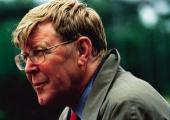

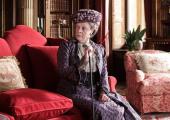
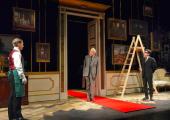
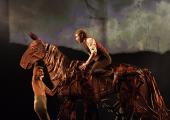
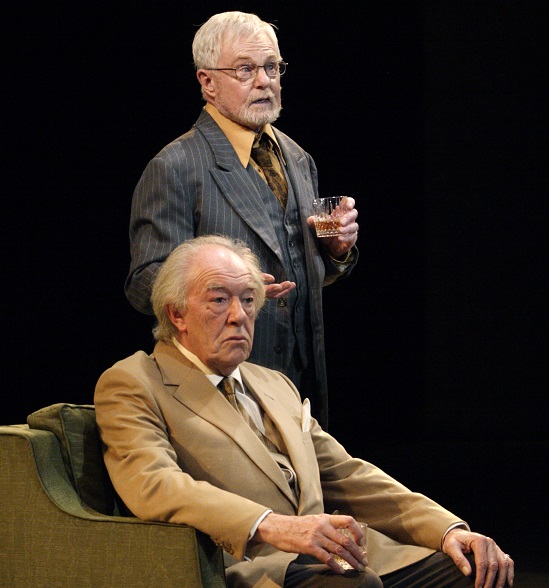 This was a compilation album with well-choreographed tonal shifts. Different buttons were pushed as James Corden beat himself up as Francis Henshall, Simon Russell Beale revisited his fiercely intelligent Prince of Denmark, and Joey the foal ballooned into a mighty stallion. And as the story of the National’s 50 years unfolded, a subtle hand was at work making connections between apparently random clips. We segued from one African queen to another as Cleopatra made way for a young gay man in Angels in America dying of Aids and missing his cat Sheba. Alan Bennett’s history boys, caught napping by the headmaster when playing at prostitution in a French class, pretended instead to enact a scene from a military hospital at Ypres. Straight after that the trenches were presaged for real in War Horse.
This was a compilation album with well-choreographed tonal shifts. Different buttons were pushed as James Corden beat himself up as Francis Henshall, Simon Russell Beale revisited his fiercely intelligent Prince of Denmark, and Joey the foal ballooned into a mighty stallion. And as the story of the National’s 50 years unfolded, a subtle hand was at work making connections between apparently random clips. We segued from one African queen to another as Cleopatra made way for a young gay man in Angels in America dying of Aids and missing his cat Sheba. Alan Bennett’s history boys, caught napping by the headmaster when playing at prostitution in a French class, pretended instead to enact a scene from a military hospital at Ypres. Straight after that the trenches were presaged for real in War Horse. 